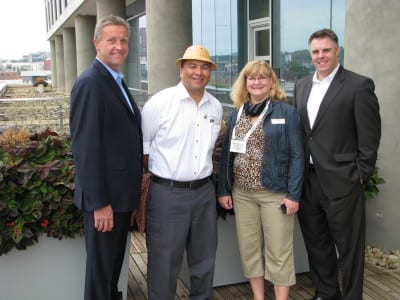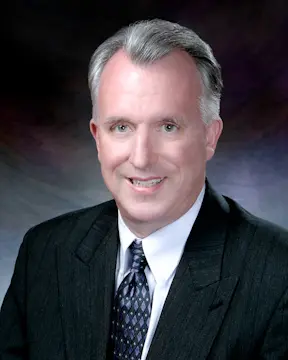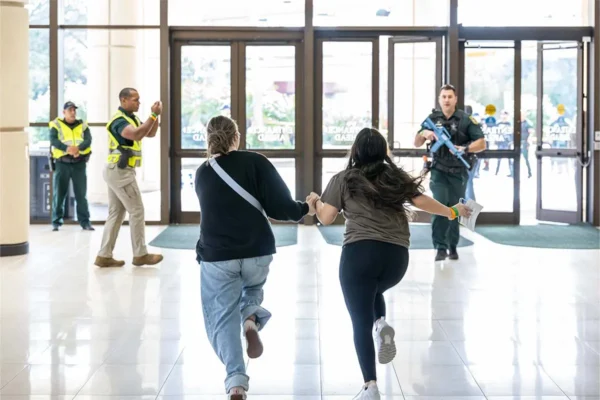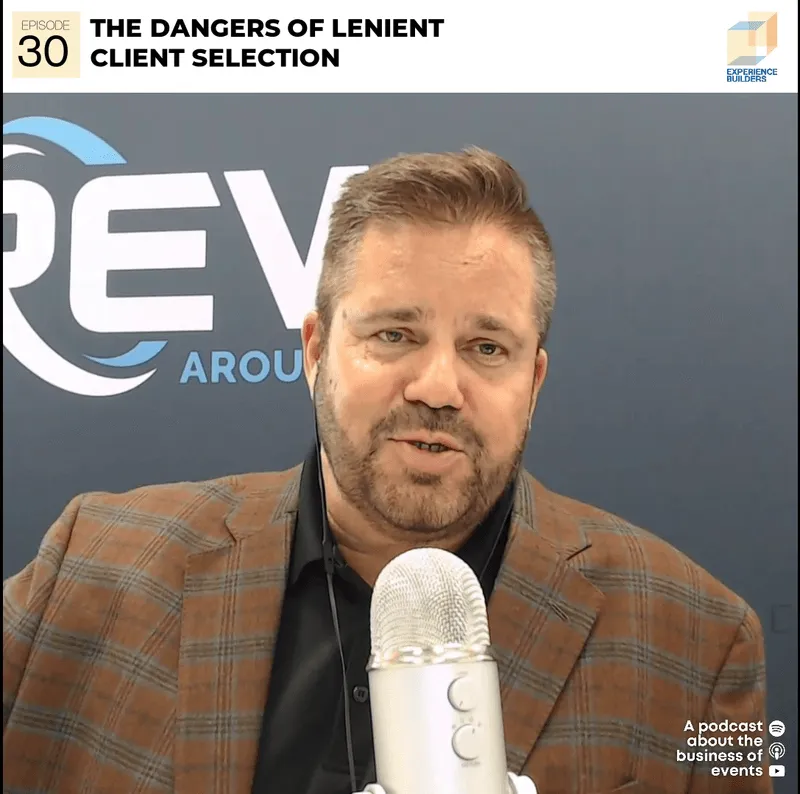The first educational event of the 2014 ASAE Annual Meeting in Nashville, Tenn., wasn’t a traditional education session.
No — it was a trek—an experiential learning journey through the back-of-the-house “jungle” at the Omni Hotels & Resorts Nashville to explore its award-winning environmental sustainability program.
Organized and co-led by ASAE Convene Green Alliance (CGA) as a “Green Safari for Meeting Professionals,” the opportunity attracted 44 attendees who donned bandanas and hiked with pith-helmeted hotel executives who explained the many green features of the Leadership in Energy & Environmental Design (LEED) Silver-certified property.

“To get such an intimate view of sustainability operations at a brand-new major meetings facility like the Omni Nashville is a real treat. The property’s staff of engineers, chefs, and other experts could give first-hand, practical insights into what is possible at a green venue and why meeting professionals should care,” said Kristin Clarke, director, CGA. “It helps them create metrics and ask questions on their RFPs to ensure that hotels continue to develop their green features. The fact that we had to turn people away because of size limitations shows just how popular these events have become and the interest that planners have in managing their meetings sustainably.”
The hotel, which opened in September 2013, uses a single stream recycling program and recycles cooking grease as well. Attendees descended into the parking garage under the hotel to see three large tanks that separate grease from drain water in what is considered one of the most advanced grease recycling system in the world.
“Our property is doing its part to sustain a healthy balance of natural resources in our day to day operation, while providing our guests with the luxury experience they expect,” said Tod Roadarmel, director of sales and marketing, Omni Hotels & Resorts Nashville.
Few trekkers had ever been in a commercial laundry facility, so they were interested in seeing the latest technology to conserve water and energy used to process the 300 million pounds of laundry needed in the hotel’s first 10 months. The industry-leading washer system uses just 0.5 gallons per pound to wash laundry – significantly less than the 0.75 gallons per pound that is largely considered the industry standard for eco-friendly operations
Tony Scalera explained that high-pressure jets spray the laundry as it is being loaded into the tunnel washer to provide instant saturation, which cuts down on the amount of chemical that is needed at the beginning of the wash process. After washing, presses remove much of the water from fabrics, which reduces the drying time to 14-18 minutes as opposed to the more typical 45 minutes to one hour. A water reclamation system reclaims 30 percent of the water used in laundry washing and re-circulates it to various stages of the tunnel to reduce the amount of fresh water needed.
The group’s next stop was the kitchen, where hikers learned about local and seasonal food sourcing from nearby Murfreesboro. Award-winning Executive Chef David Harter reported that the hotel sources 40 percent of its food from local farms and manufacturers. He also points to the hotel’s high-tech re-therm ovens, which can easily adjust their energy usage to each group’s specific amount of food. The hotel also burns vegetable peelings in its heating operation to re-use waste and reduce its carbon footprint.
The safari path next led through what Director of Engineering Gonzalo Hernandez called “Air Handler Alley,” a huge air duct with carbon dioxide sensors that continuously monitor air quality and the air handling system. Driven by variable frequency pumps, it ensures that air quality remains excellent by controlling the proper mix of outside and inside air.
The hotel also has an insulating and interestingly designed “green roof” with a start-up herb garden, as well as a saline swimming pool that is gentler to the environment and human skin, clothing, and hair. The safari ended with a tribal breakfast featuring sustainable cuisine, including Willow Egg Farms scrambled eggs with Sweet Water Valley Farms cheddar; hormone-free, all-natural pork sausage and maple blueberry sausage; potato wedges griddled with local onions, organic and seasonal fruits and berries, sheep’s milk yogurt, muffins with Nashville Jam Company preserves, and Tennessee honey and butter.
Green safaris are a top-rated learning format for ASAE, and they will continue to be offered at various properties after September 2014, when the CGA brand and resources will merge into the association community’s larger Power of A brand. Housed within ASAE, Power of A – which will continue to share news and know-how about green meetings, volunteerism, and other social responsibility ventures—showcases the value brought to society by associations, often through community service, social and environmental innovation, and sustainability activities.
For more information, visit www.asaecenter.org/socialresponsibility and www.thepowerofa.org.































